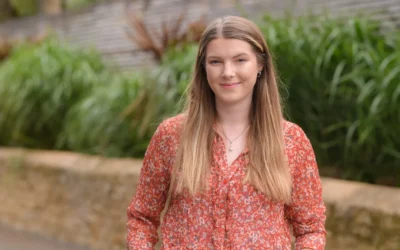1. Do your research
The best way to show you are interested in a company is to know a lot about them. In 2018 with Google and Wikipedia it is so easy to find out alot about a company, and because it’s so easy you can count on the fact that a large proportion of the candidates will have done at least some low-level research in preparation . Wikipedia is a great place to start and gives you a good overview of a company. However, if you want to make yourself stand out from the crowd, try some different Google searches. See if you can find the company’s financial report for the last year, or search newspaper article archives to see if the company had any particular successes or problems in the past few years that it might be good for you to know about.
2. Prepare some answers
Interviews should be as natural and as much like a normal conversation as possible, so being able to talk off the cuff is key. That said, there are a number of common questions interviewers ask that you might as well think about how you might answer to save any awkward silences. It’s particularly good to think of examples for questions like “Describe a time you demonstrated leadership ability”, or “Describe a time you worked as part of a successful team”. If you already know what you’re going to talk about, then you will seem prepared, switched on, and will be doing well. Just make sure that you’re always answering the question they actually asked, and not the one that you want them to ask.
3. Dress appropriately
This one’s an easy one. Statistics have shown that interviewers tend to choose people that are most like themselves, so looking the part is a good start to this. Make sure you’re suitably smart. The best way to dress for an interview is to imagine it’s your first day working for this company. What would you be wearing? If it’s a suit and tie affair then that’s great, if it’s something more casual then dress appropriately. If you’re unsure then don’t be afraid to ask the person dealing with your applications. It could save you some embarrassment later and shows that you’re aware and thinking about these things. A useful guide to work dress codes can be found here. If in doubt though, err on the side of smart over casual.
4. Sit up straight
Again, another easy one! Imagine you’re on a first date. If you’re slouching on the chair with your feet up on the table I doubt you’ll be seeing the person sitting opposite you much again. It’s the same with interviews. Interviewers want to feel that you’re interested and engaged with them. If you come across too relaxed by lounging in the chair you will give the impression that this interview doesn’t matter that much to you. Sitting up straight, perhaps slightly forward in the chair is great body language and will give a good impression.
5. Make eye contact
This can be hard when you’re nervous and the unnatural setting of an interview can exacerbate it but eye contact, like body language, is a key way to show the interviewers you’re engaged with them. Make eye contact with the person who is speaking to you and, if there are multiple people in the room, then try to engage them all in your answer. Move your eyes from one person to the next in a natural way. This not only shows your engaged but confident too, and able to address people in a professional manner.
6. Be positive and enthusiastic
It sounds obvious, but you’d be surprised how many people talk themselves down in interviews. Whilst honesty is of paramount importance, it doesn’t mean you have to spill all your darkest secrets. Don’t say that the reason you didn’t do so well in college was because you didn’t work hard enough. Tell them about all the other things you did and what skills you learnt along the way. If you’re going to talk about a failure or a mistake you made, use it as an example of something you’ve learned, or something you’d do differently next time. Similarly always be enthusiastic about the job being offered and about yourself in general. Nobody wants to hire someone who doesn’t sound like they’re interested in the job they’re applying for.
7. Don’t be afraid to think
People are always afraid of silence in interviews. Given you spend a lot of time talking, any intervening silence can seem like an eternity, but never be afraid to take time to think before answering. Interviewers would much rather have a thought-out, interesting answer than one that is rushed and doesn’t seem to answer the question they asked. The silence you notice will never be as long as it feels.
8. Stay professional at all times
Companies sometimes tell you that you’re being assessed throughout the day of interviews, and sometimes they don’t, but remember you are always making an impression on them. From the moment you walk in the door in the morning, to the moment you get back in the car to go home, they will notice how you behave, whether consciously or unconsciously, and are considering whether you’d be a good fit for their company.
9. Ask questions
Interviewers almost always end an interview with “do you have any questions for us?”. This caught me off guard in my first few job interviews as it’s an awfully quick role reversal from the interviewee to the interviewer yourself, but now I think of an interview as a two-way street. The first part of the interview is the company’s chance to get to know more about you, and your suitability for the role, and then the end of the interview is your chance to get to know more about the company and its suitability for you! Ask something about the role or the company that you’re interested to know and haven’t been able to find elsewhere. A good easy question is “what is it like to work in this company?” Having a personal perspective from the inside can be invaluable to you as a prospective employee and also shows the interviewers that you’re serious in your interest for this role. Try to avoid questions with yes/no answers and similarly avoid questions that are too vague and difficult to answer. Relevance is key.
10. Enjoy it!
It sounds strange but interviews can be fun! The interviews you most enjoy are likely to be for the company and job that you’d most enjoy doing. The interviewers will think the same and be more likely to offer you the job. The interviews I’ve been most successful at are always the ones I’ve enjoyed the most. Even if you don’t think the job is for you, enjoy the chance to meet some new people working in an interesting field. Use it as an opportunity to develop your interview skills and to find out about what life is like in that particular company. Making new contacts in the business world is always a good thing.





